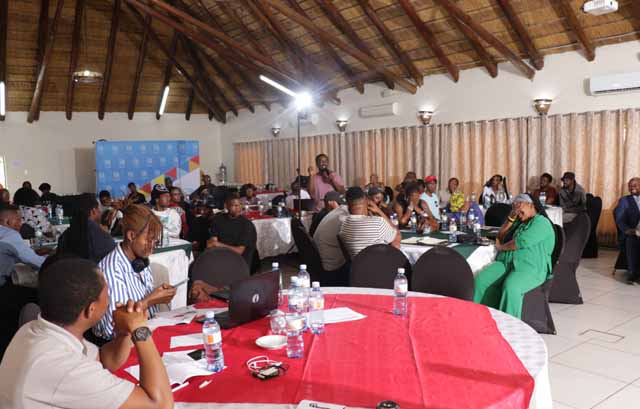By DEO GRATIAS MAGAGULA | 2024-12-05

THE Eswatini Copyright and Neighbouring Rights Society (ESWACOS), in collaboration with the ministry of commerce, industry and trade and the Eswatini Intellectual Property Office (EIPO), hosted a pivotal workshop for music rights holders at the Sibane- sami Hotel yesterday.
The workshop brought together a diverse group of stakeholders, including singers, songwriters, musicians, producers, arrangers, music publishers, and record label owners.
Its primary aim was to educate and empower attendees with critical knowledge about copyright and essential music business practices.
Topics covered included copyright in the music industry, collective management, music tariffs, and the intricacies of contracts and agreements.
Notable attendees included EBIS Radio DJ Bongani Bobo Dlamini, musician and producer Ziyawa Kazitha, traditional singer-songwriter Thobile Makhoyane, and other industry players such as producers, lawyers, and hip-hop artists.
Dr Celucolo Dludlu the ministry’s intellectual property registrar, emphasised the government’s commitment to establishing a copyright system that aligned with international standards.
He urged artists to view royalties as their entitlement, not as favours or support.
Dr Dludlu further highlighted the importance of a culture of excellence in local productions, making it easier to achieve the 90 per cent local content target for establishments and radio stations. He encouraged artists to produce more content to expand the selection pool.
“Artists must change the mindset that establishments are doing them a favour. Royalties are a property right,” stated ESWACOS Executive Director Mmeli Hlanze. He also stressed the importance of split sheets in ensuring fair compensation and advised artists to form associations that advocate for their rights.
During the question and answer session, DJ and producer Thabo Mnisi, popularly known as Touch of Soul, expressed gratitude to ESWACOS for its educational efforts and inquired about steps artists could take to secure their royalties.
Khole, a musician, raised insightful questions about split sheets, particularly their revision and accessibility. She also sought clarification on the role of producers in live music recordings. Hlanze explained that an individual funding the project was typically considered the producer.
Another highlight came from Bongani Bobo Dlamini, who pointed out that EBIS lacked a sufficient database to achieve the 90 per cent local music target for radio play. This statement sparked debate, with many artists challenging its accuracy.
Music composer and MC Tjovitjo reiterated the importance of split sheets to prevent disputes and ensure equitable compensation.
Ziyawa Kazitha stressed the need to take the music industry seriously and treat it as a business. “It’s not just entertainment; it’s a business. The equipment we use is world-class, but the financial rewards often don’t match the effort and investment. I’m glad the government is addressing these issues,” he said.
Hlanze also discussed the topic of folklore, which he noted was state-owned as part of cultural preservation.
Membership to ESWACOS was free, though artists would be required to pay an advertising fee.
The workshop marked a significant step forward in empowering Eswatini’s music professionals, equipping them with tools to navigate the industry and advocate for their rights.
share story
Post Your Comments Below
All material © Swazi Observer. Material may not be published or reproduced in any form without prior written permission.
Design by Real Image Internet